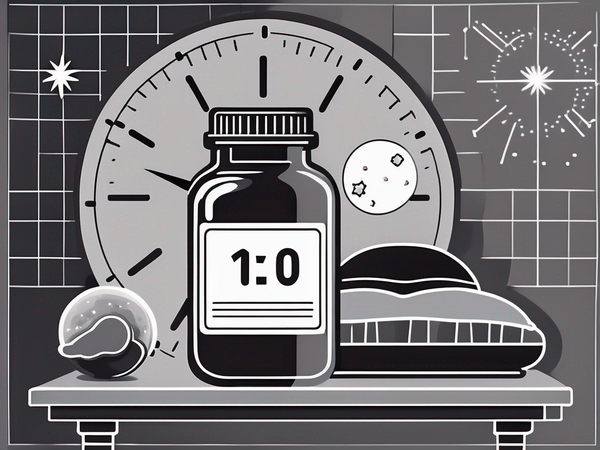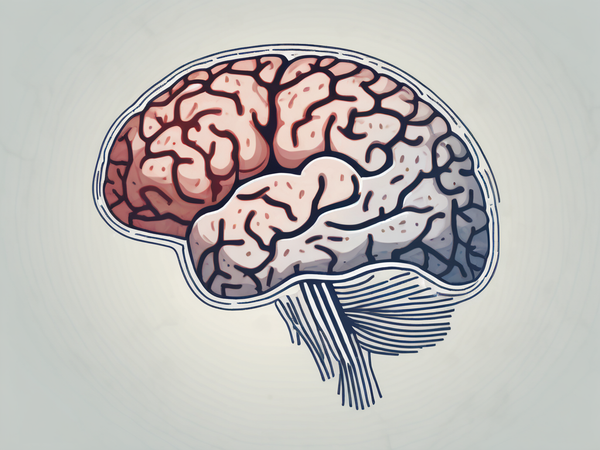You may have heard that stress can lead to weight gain, but does stress cause weight loss, too? The answer is yes, it does!
Tired of hearing “Why so skinny?” Eating well but struggling to maintain weight? Want to eat but just don't feel hungry? Maybe the stress is coming your way for maintaining or gaining weight. It is also true that stress may lead to weight gain and drastic or unintentional weight loss. Today's article will focus on how stress can lead to weight loss and how to deal with it. To begin with, let’s first try to understand what stress is and what its types are.
What is Stress?
Stress is a psychological and physical response to demands or challenges that may feel beyond your ability to cope. It triggers the body's "fight or flight" reaction, releasing hormones like adrenaline and cortisol. This can manifest in various ways, including increased heart rate, heightened alertness, and changes in muscle readiness.
Type of Stress
Stress can be classified into acute or chronic, depending on its duration. Acute stress is usually short-term and resolves quickly, like being stressed and stuck in a traffic jam. Chronic stress, on the other hand, is a long-term stress that can act as a contributing factor to unintentional weight loss. Let’s learn about chronic stress in brief:
Emotional Stress
Emotional stress is one of the most common forms of chronic stress. It typically arises from ongoing personal challenges such as long-term relationship problems, persistent financial worries, or enduring dissatisfaction with one's life circumstances. This type of stress can manifest as anxiety, depression, irritability, or mood swings. Unlike acute stress, which comes and goes, emotional stress lingers and can profoundly impact an individual's mental health.
Physical Stress
Physical stress is related to the continuous strain or demand on the body. This can come from prolonged physical labor, enduring illness, or living with a chronic condition like arthritis or back pain. Chronic physical stress is constant, unlike immediate physical stress that might come from a singular event (like running a marathon). It can lead to muscle tension, headaches, and fatigue and exacerbate existing health issues.
Metabolic Stress
Metabolic stress refers to the strain on the body's metabolic processes. It often arises from poor dietary habits, chronic sleep deprivation, or a sedentary lifestyle. Metabolic stress can disrupt the normal functioning of various bodily systems, leading to issues like obesity, type 2 diabetes, and cardiovascular diseases. It also affects how the body processes and stores energy, often leading to fatigue and a general sense of unwellness.
Hormonal Stress
Hormonal stress is related to imbalances or prolonged disruptions in the body's hormonal systems. Stress hormones like cortisol are essential for the body's response to immediate stressors, but when these hormones are consistently elevated, they can lead to various health problems. Chronic hormonal stress can affect mood, appetite, sleep, and sexual function. It can also increase the risk of conditions like obesity, depression, and anxiety disorders, as well as affect metabolic functions.
Stress and weight connection
The relationship between stress and weight is complex and can vary significantly from person to person. Stress can lead to changes in weight, either through weight gain or weight loss.
Stress and Weight Gain
Stress and weight gain are intricately connected through a combination of physiological, psychological, and behavioral factors.
- Increased Appetite and Cravings:
- Slowing down metabolism
- Stress-induced emotional eating
- Stress-induced fatigue/mood swings lead to reduced physical activity.
- Disrupted sleep patterns cause hormonal imbalances.
Stress and Weight Loss
Stress and weight loss have a complex link that affects human health's physiological and psychological aspects. In the pursuit of gaining in-depth knowledge on the connection between stress and weight loss, let's throw some light on ways in which stress manifests as weight loss:
-
Gastric Distress
Stress can directly impact the gastrointestinal system, leading to gastric distress. This distress often manifests as symptoms like stomach cramps, diarrhea, or constipation. In stressful situations, the body’s "fight or flight" response, mediated primarily by the hormone cortisol, can divert blood from the stomach and intestines, affecting digestion and nutrient absorption. This disruption can lead to decreased caloric intake and, consequently, weight loss.
-
Hormonal Imbalance
Hormonal responses are crucial in the connection between stress and weight loss. Cortisol, often called the stress hormone, is released in response to stress. While cortisol is essential for managing stress, its prolonged elevation can disrupt the balance of other hormones like insulin, vital for blood sugar regulation. Disruption in insulin levels can affect metabolism and energy storage, potentially leading to weight loss.
Ghrelin, known as the hunger hormone, is another key player. Under normal circumstances, ghrelin levels increase before meals and decrease afterward, signaling hunger and satiety. However, chronic stress can alter ghrelin production, disrupting standard eating patterns and possibly leading to reduced appetite and weight loss.
-
Loss of appetite
One of the most direct ways stress can lead to weight loss is by losing appetite. The body's stress response and hormonal imbalances can significantly reduce the desire to eat. Stressful situations can make food seem unappealing, or stress can be so consuming that individuals simply forget to eat. Additionally, the mental burden of stress can lead to psychological conditions such as anxiety and depression, which often have a decreased appetite as a symptom, further contributing to weight loss.
Preventing weight loss due to stress
Preventing weight loss due to stress involves addressing both the physical and psychological aspects of stress and its impact on your body and eating habits. Here are some strategies to help manage stress and prevent unhealthy weight loss:
-
Recognize Stress Signals
Awareness: Be aware of how stress affects your body and eating habits. Recognizing signs of stress early can help you take steps to manage it before it leads to significant weight loss.
-
Develop Healthy Eating Habits
Regular Meals: Eat at regular intervals to ensure your body gets the necessary nutrients. Skipping meals can exacerbate stress-related weight loss.
Balanced Diet: Focus on a balanced diet rich in fruits, vegetables, whole grains, lean protein, and healthy fats. Nutrient-dense foods can help combat the effects of stress on the body.
Mindful Eating: Practice mindful eating to enhance your awareness of hunger and fullness cues, which stress can disrupt.
-
Manage Stress Effectively
Relaxation Techniques: Engage in relaxation techniques such as deep breathing, meditation, or yoga. These practices can reduce stress levels and help stabilize your appetite.
Physical Activity: Regular exercise is an excellent stress reliever and can also stimulate appetite.
Adequate Sleep: Ensure you get enough sleep, as a lack of sleep can exacerbate stress and affect eating patterns.
-
Seek Support
Social Support: Stay connected with friends and family. Sharing your worries and seeking support can alleviate stress.
Professional Help: If stress is overwhelming, consider talking to a mental health pr
Reduce Stimulants: Limit or avoid caffeine and sugar, which can increase stress and disrupt eating patterns.
Consider Nutritional Supplements: If you’re struggling to maintain a balanced diet, consider supplements for anxiety, tea for relaxation, etc., under the guidance of a professional.
Conclusion
Whether you are looking to prevent weight loss, maintain or gain weight, or even healthily lose weight, stress management can help you easily achieve your weight goals. Preventing weight loss due to stress is about creating a balanced approach to your mental and physical health. It involves nurturing your body with proper nutrition, managing stress through various techniques, taking anxiety supplements, and seeking support when needed. Addressing stress proactively can help maintain a healthy weight and overall well-being.





























 DOWNLOAD NOW
DOWNLOAD NOW
